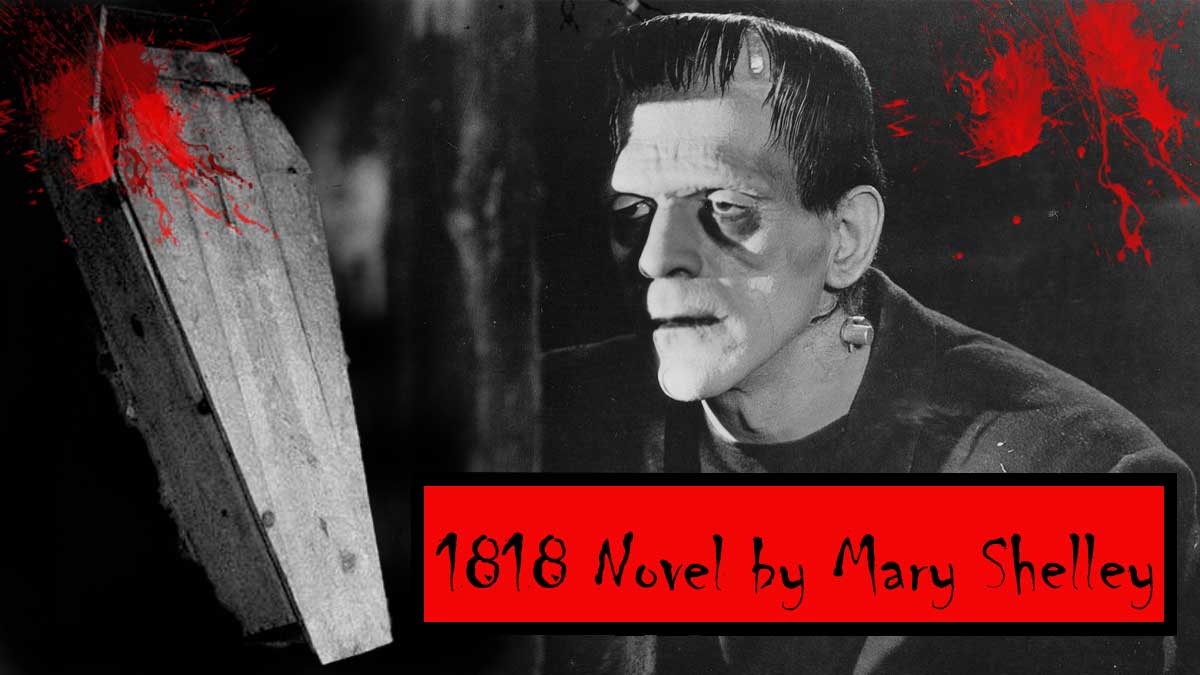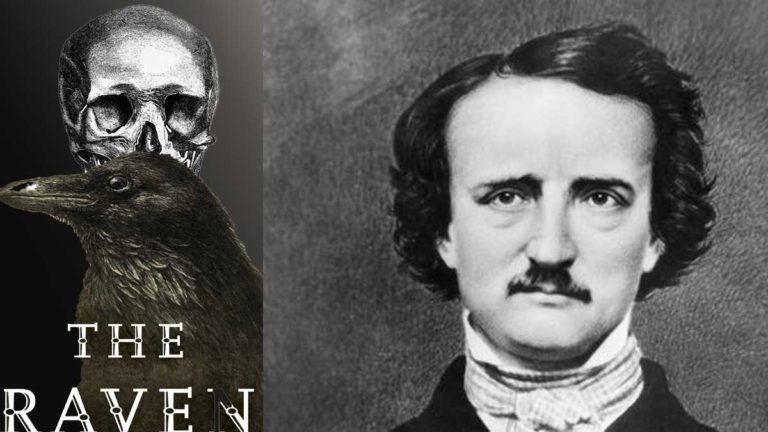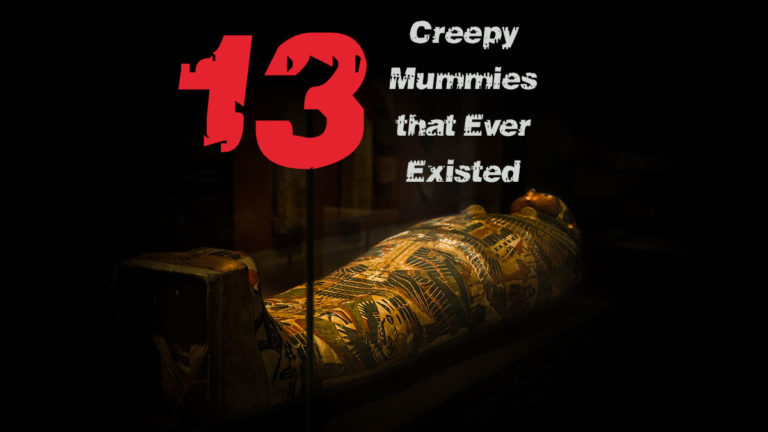The Story of Frankenstein, 1818 Novel by Mary Shelley
The classic Frakestein 1818 novel is often considered one of the best works of Shelley. People also speculate if there was a true story od Frakestein. The 1818 novel by Mary Shelley, begans like this- Robert Walton, the commander of a ship going for the Polar Region, writes a collection of letters to his sister in England detailing the progression of his perilous voyage. After a successful start, the operation is quickly derailed by waters choked with ice.
When Walton becomes trapped, he meets Victor Frankenstein, whose been trekking over the ice on an ice sled pulled by a team of dogs. After rescuing him, Walton helps the man recover from his wounds and tells him about Frankenstein’s monster.
Victor begins his story by describing his childhood in Geneva. After a happy childhood spent with his cousin Elizabeth Lavenza (in the 1818 version) and friend Henry Clerval (in the 1831 edition), Victor enrolls at the University of Ingolstadt to study natural philosophy & chemistry. After many years of investigation, he starts to believe that he has solved the mystery of life there.
He now has the information he’s always wanted, and he goes to work creating a whole new monster out of recycled body parts. He brings his brainchild to life on a climactic night in the privacy of his own home. However, when he sees the monster he has built, he is horrified. His slumber was disrupted by the apparition of a monster lurking above him.
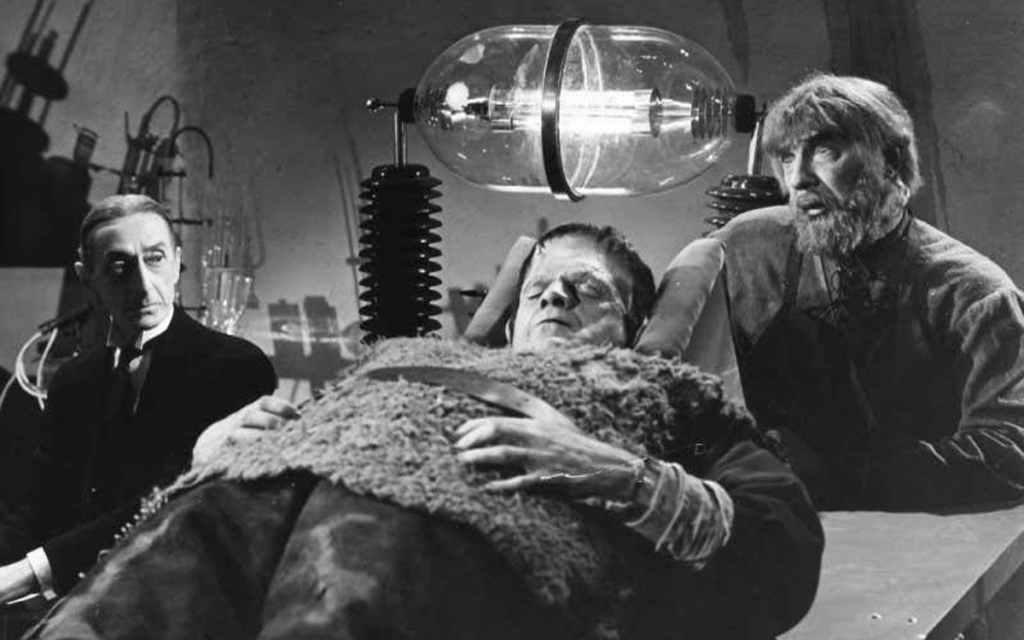
He ran into the streets and wandered in guilt after a restless night of sleep. Henry, a student at the university, is brought back to Victor’s flat by Victor. Despite the monster’s absence, Victor becomes unwell with a high temperature.
Victor plans to return home to Geneva, to the family, as well as to health after his heinous crime. His father’s letter informs him that his younger brother, William, has indeed been slain just before he leaves Ingolstadt. Victor hastily returns home, distraught.
In the forests where William got strangled, he sees the monster and is becoming persuaded that the creature is responsible for his brother’s death.
Victor arrives in Geneva to learn that Justine Moritz, a sweet and kind girl who was fostered by the Frankenstein family, has been accused of murder. Despite her claims of innocence, she is tried, convicted, and killed. When Victor learns that his monster is responsible for the deaths of two people he cared about, he is overcome with remorse.
Victor plans a mountain getaway to help him cope with his loss. The creature appears to him when he crosses a huge glacier on his own one day.
Despite the monster’s admission that he killed William, he begs for forgiveness.
He claims that he swung at William in a frantic effort to hurt Victor, his cruel creator because he was lonely, rejected, and lonesome. It asks Victor if he can make him an equally horrific partner, and Victor agrees to do so.
The idea of producing a second monster makes Victor reluctant to accept the offer. However, the creature is persuasive and able to persuade Victor in the end. The two of them go to England together after arriving in Geneva to gather data for the construction of a woman monster.
After saying his goodbyes to Henry in Scotland, he retreats to an isolated island inside the Orkneys to try to duplicate his previous achievement.
During a night of self-doubt, Victor looks out the window and sees the creature looking at him with a terrifying smile. Because of the probable ramifications of his research, Victor burns it. Revenge is a promise the monster makes, pledging to be with Victor on his wedding night.
Further in the 1818 novel, Later on that night, Victor drives a boat out to a lake and throws the second creature’s carcass into it. He can’t go back to the island since the wind has picked up. He washes ashore in an unfamiliar town in the early morning. His arrest and impending trial for a murder that was uncovered the night before are both announced to him upon his arrival. When he sees Henry Clerval’s corpse, Victor denies having knowledge of the crime, but when he sees the imprint of the monster’s fingers on his neck, he is appalled. A sick and feverish Victor is held in jail until he recovers and then freed after his illness.
Victor marries Elizabeth soon after arriving in Geneva alongside his father. That night before his wedding, he is afraid that the monster’s prophecy would come true and someone will kill him. As a precaution, he sends Elizabeth off to wait for him while he is gone.
His new wife had been screaming and it dawned on him that the creature had been threatening to murder Elizabeth, not him, as the creature had hinted. A few days later, Victor’s father succumbs to his sadness and dies. Victor swears he will spend the final years searching for the monster and avenging himself.
Victor is on a never-ending pursuit of the monster through the ice cap. Victor is on the verge of catching up with the creature in a dogsled pursuit when the water surges and the ice cracks, creating an unbridgeable distance. When Walton runs into Victor, we’re back to the period of Walton’s fourth message to his sister in this installment of his story.
Walton goes on to recount the rest of the tale in the second set of letters he writes to his sister. Victor, who was already unwell, quickly deteriorates and dies after the two men meet.
When Walton returns to the chamber where Victor’s corpse is lying, he is shocked to discover the monster grieving over him. He informs Walton of his loneliness, misery, anger, and guilt, which the monster describes.
He believes already that his maker has passed away, he has the power to put an end to his own pain and misery. The creature then makes its way to the furthest reaches of the ice cap, where it will perish.
The Analysis of Frankenstein, 1818 Novel by Mary Shelley:
Victor’s failure to comprehend the consequences of his actions is the central struggle in Frankenstein. Victor is completely self-absorbed and fails to consider the consequences of his actions on others. A reminder of Victor’s inability to accept responsibility for one’s actions in defying nature is provided by the monster.
When Victor neglects his responsibilities to his family and his fiancée in order to focus on his studies at the University of Ingolstadt, the two begin to argue. After “discovering the source of creation and life,” Victor gets fixated on the idea of creating a monster.
He doesn’t give a second thought to the horrors that creature must have gone through, nor does he care that he is neglecting his family in order to complete his project. He is so preoccupied with achieving his goals that he has no room for anything else on his mind.
He flees the chamber in disgust and fear after animating the creature, signaling the culmination of his irrational desire to bring life to the universe. When Victor doesn’t like the outcome, he simply rejects the conclusion, illustrating the tension between Victor’s need for control and his sense of moral duty, In the 1818 novel by Mary Shelley.
When Victor hears of his brother William’s murder and the false charge against Justine, the tension rises. One of Victor’s options now is whether or not to accept responsibility for his brother’s death. Instead of revealing what he understands about the creature, he allows Justine to be put to death.
When the monster encounters Victor in the mountains, the tension is ratcheted up when the monster shares with Victor his narrative of pain, loneliness, and isolation. Victor’s encounter with the monster’s creator is another opportunity for him to rethink his selfish path.
When Victor grudgingly agrees to build a mate again for the monster in return for the two of them retreating somewhere distant, the storyline indicates a possible denouement.
There will be renewed hostilities when Victor refuses to follow out this plan since he is appalled by the idea of killing the female monster in its entirety. Despite the monster’s threats of vengeance, he disregards the consequences of his careless decision.
It surprises Victor when his buddy Henry Clerval is slain, and again when his fiancée Elizabeth is assassinated, even though the monster has said explicitly that he is now devoted to make Victor’s life a miserable hell by robbing him of everybody he loves in the 1818 novel.
In the aftermath of Elizabeth’s death, the war moves into its last phase, in which Victor promises to find and kill that monster in retaliation for all of the fatalities. Such darkness can also be witnessed in Edgar Alan Poe’s poem Raven. Because the monster now has his creator’s whole attention, and because the two people’s destinies are now intertwined, this commitment partly resolves the issue.
In the Arctic, Victor meets Walton and brings the tale full circle back to the moment at which Walton’s narration was transferred to Victor’s.
In the end, Victor’s journeys tire him to the point where he passes away on the ship, his story’s arc complete. Walton discovers the creature in the room and weeps as he gazes at Victor’s lifeless corpse.
Victor refuses to admit his involvement in causing the turmoil and tragedy that led to the deaths of numerous innocent individuals, as well as the pain of his own creation.
When the monster displays regret and self-loathing, it suggests he has grown more “human” than his creator. Seeing and hearing the creature for the first time, Walton feels “a combination of curiosity and sympathy.” Toward the end of the story, the monster explains his plan to commit himself before departing on his own.
Themes to Consider, 1818 Novel by Mary Shelley:
A Dangerous Educator
A quest for knowledge is central to Frankenstein, as Victor strives to break beyond the boundaries of acceptable human behavior and get access to life’s greatest mysteries. On the other hand, Robert Walton is attempting to break new ground by attempting to reach the North Pole.
Because of Victor’s destructive invention and Walton’s precarious position between ice sheets, Victor’s relentless search for knowledge and light (see “Light and Fire”) becomes disastrous. Walton, having seen Victor’s devastation caused by his insatiable curiosity, finally abandons his dangerous goal, unlike Victor, whose hatred of the monster drove him to his grave. This is also the 1818 frankenstein summary.
Nature in All Her Majesty
As Romanticism (late eighteenth century to mid-nineteenth century) was welcomed by the individual as a source of uncontrolled emotional experience for the individual, the magnificent natural environment first gives characters the prospect of spiritual regeneration.
Reeling after the deaths of William and Justine, Victor journeys towards the mountains in an attempt to brighten his spirits. As spring approaches, the monster’s heart begins to thaw after a harsh winter of cold and abandonment.
Even while nature’s ability to lift one’s spirits is clear throughout the narrative, Victor’s ability to find solace in it is diminished after he discovers that the monster will follow him wherever he goes. Nature, in the guise of the Arctic desert, serves only as a background for Victor’s primordial fight against the monster after the story.
Monstrosity
The monster is at the heart of the story, so it’s no surprise that this subject runs throughout the book. The creature, at eight feet in height and with a horrible face, is despised by the rest of civilization.
It’s not only his look that makes him monstrous but also the way he was created, in which a combination of stolen body parts and weird substances was secretly animated. He is the result of evil, otherworldly forces at work, rather than of a collective scientific endeavor.
The information that Victor utilized to construct the monster (see “Dangerous Knowledge”) is only one of many horrific things that appear in the book. It is possible to say that Victor is a type of monster because of his ambition, secrecy, and selfishness that separate him from the rest of the human race.
Even while he may seem to be a normal person, he may really be a “monster” within because of his obsession with his own invention. Some reviewers have also called the work “monstrous,” an amalgamation of many voices, texts, and tenses (see Texts).
Secrecy
Victor sees science as an enigma that must be unraveled and its secrets closely preserved. “an unrefined guy, yet thoroughly versed with the mysteries of his field,” says the natural philosopher M. Krempe, whom he encounters at Ingolstadt.
When Victor tells Walton his story, he reveals that his fixation with generating life and his desire to eradicate the monster are both veiled in mystery.
The monster, on the other hand, is compelled to live in solitude by his monstrous looks, while Victor maintains his obscurity out of shame and remorse. In his letters, Walton acts as the last confessor for both of them, and the tragedy of their relationship is immortalized.
It is only in the last moments of his life that Victor is able to break free from the suffocating silence of concealment, and it is only via Walton’s presence that he can build a human connection with the monster.
In the 1818 novel, When it comes to texts, Frankenstein is awash with them: letters and notes are snuggled among one other throughout the novel, while diaries, inscriptions, and books are often merely mentioned or referenced.
Every aspect of the narrative is included inside Walton’s letters, which include Victor’s story, the monster’s story, Felix and Safie’s love story, and even allusions to Paradise Lost.
An essential feature of narrative structure is its abundance of language, which serves as a tangible expression of characters’ feelings and attitudes. The monster’s evolution is heavily influenced by its ability to communicate.
The monster learns to talk and read by listening to and observing the peasants, and this allows him to comprehend Victor’s account of how he came to be. For Victor’s sake, he subsequently leaves messages written on trees and rocks along the way to their northern ice hunt.
Family
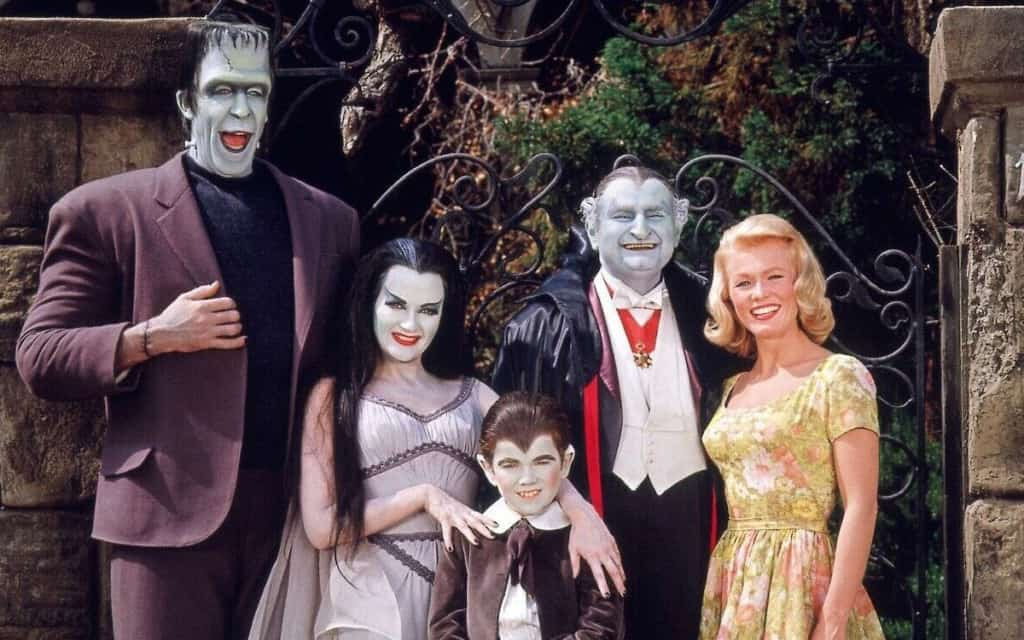
Human existence, according to 1818 Frankenstein summary, revolves on ties with one’s family. The Frankensteins and the DeLaceys are two of the most idealized families in the literature. To make matters even worse, much of the book’s terror and misery stem from people who have either been estranged from or never had a family at all.
If the study to which you devote yourself weakens your feelings, then that study is undoubtedly illegal.” Frankenstein blames his seclusion from his family for his fateful choice to create the Monster. Because he has no blood relatives, the Monster attributes his woes to the fact that he is dependent on no one.
To urge Frankenstein to build a companion for him, the Monster claims that his lack of familial ties has led him to commit murder. On the other side, Frankenstein is the Monster’s father, thus he has a family. He imagines that “No parent could claim the thanks of his kid so totally as I should deserve” the gratitude of the Monsters. As a result, they spend much of the book fighting one other.
Alienation
As well as being the fundamental source of evil, social isolation is also a kind of punishment, according to Frankenstein.
For the Monster, being cut off from humanity is what drove him to murder: “My guardians had left, and had destroyed the sole connection that kept me connected to the world. Retaliation and anger flooded my heart for the first time. In spite of this, his killings simply deepen his isolation.
In the case of 1818 Frankenstein summary, alienation is both a source of his wrong actions and a consequence of them. Frankenstein makes the Monster in a “solitary room, or rather cell,” where he works alone.
Despite the fact that his ambitions have grown dangerously while he has been “solitary,” his laboratory already seems like a “cell.” Because he is unable to inform anybody about the Monster he has made, Frankenstein becomes really isolated from those around him.
Because of their separation from God, Frankenstein, as well as the Monster, are compared to Satan from Milton’s Paradise Lost. The book suggests that estrangement from others stems from a lack of self-awareness.
“I know that when you are satisfied with yourself, that will think of us with fondness and we will hear frequently from you,” says Frankenstein’s father, pointing up the connection between self-hatred and isolation. Maintaining touch with people is a person’s way of maintaining their sense of self-worth.
Because he appears like a monster, the Monster thinks he is an outsider in human society. Before anybody else can tell him otherwise, “when I looked in a translucent pool. I was flooded with the bitterest feelings,” he realizes that he is unattractive.
After Frankenstein’s death, the Monster is left to fend for himself in the world. “You despise me, yet your abhorrence cannot match that with which I view myself,” he declares in a sarcastic tone. Alienation has the potential to lead to one’s own demise. Despite the Monster’s declaration that he intends to kill himself, Frankenstein pushes himself to death in pursuit of the creature.
Ambition:

Since it has the tendency to transform evil, ambition Frankenstein warns against it. It is Frankenstein’s egotism that drives him to create the Monster. He says of other destructive egos, “If no man allowed any pursuit whatever to interfere with the quietude of his domestic affections, Greece was not enslaved; Caesar would’ve have allowed to escape his country; America would be unearthed more gradually than; as well as the empires of Mexico & Peru had not been destroyed.” Because he compares his labor to wiping out civilizations, Frankenstein is clearly a man with enormous aspirations. One of Frankenstein’s most egregious thoughts is that his desire makes him like Satan, “the archangel that aspired to omnipotence.” Frankenstein considers himself to be the embodiment of evil. As a result of this, the story also indicates that desire alone is not sufficient to bring evil and pain. Frankenstein-like in his ambitions, Walton is shown to be a figure who must sacrifice himself for the sake of the others. Because he prioritizes his own ambitions above those of others, Frankenstein is guilty of a serious crime. This could also be the true story of Frankenstein.

